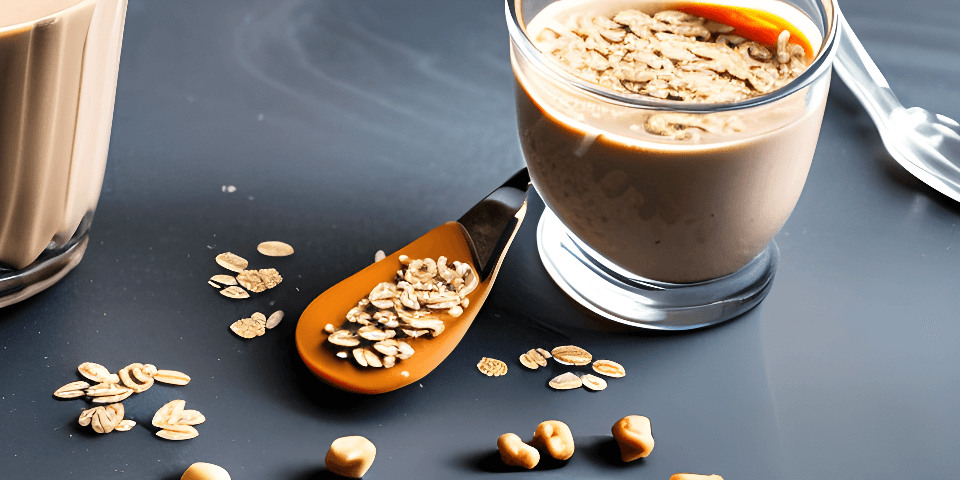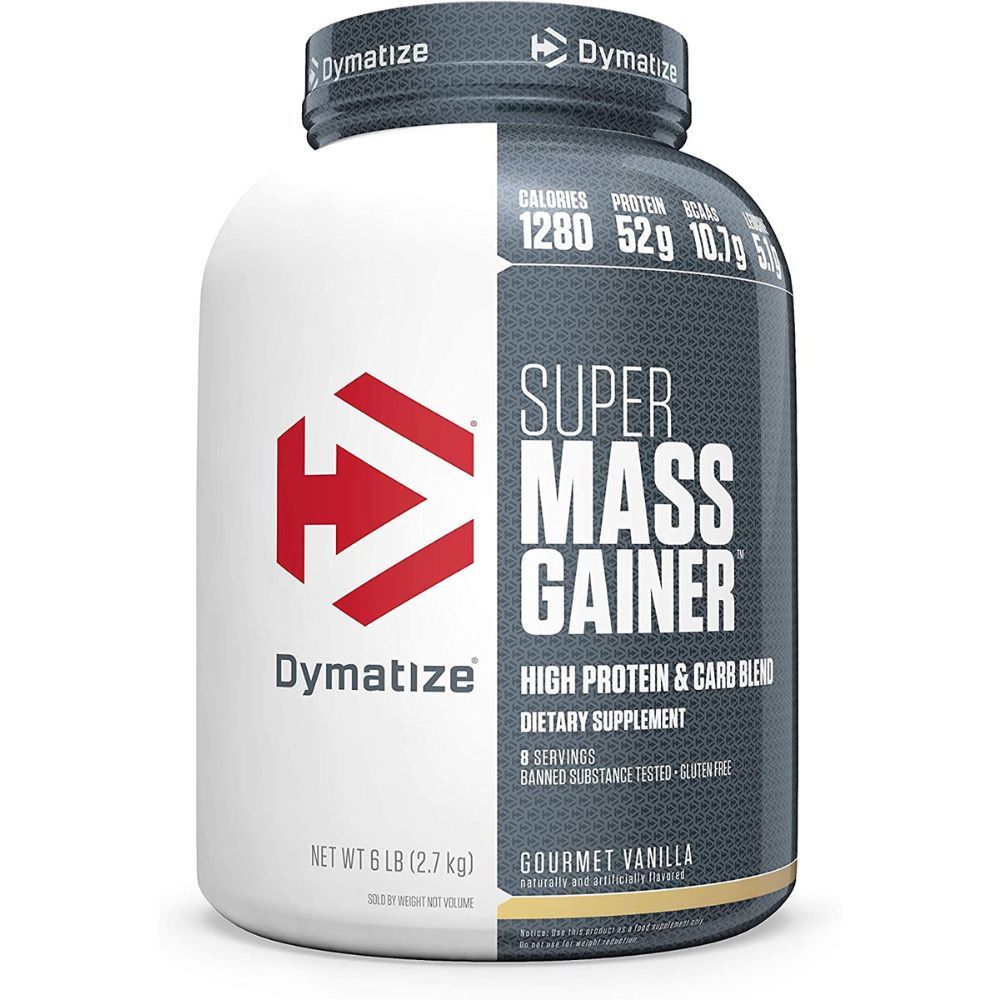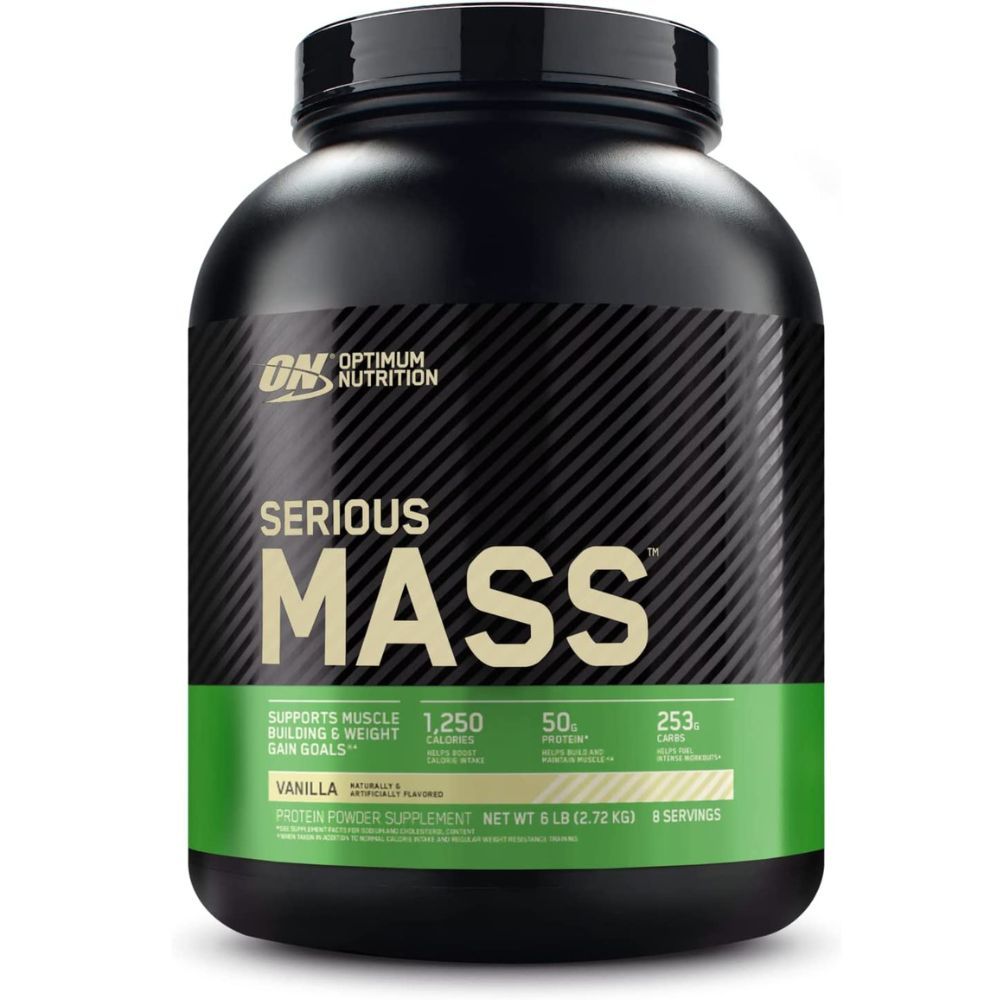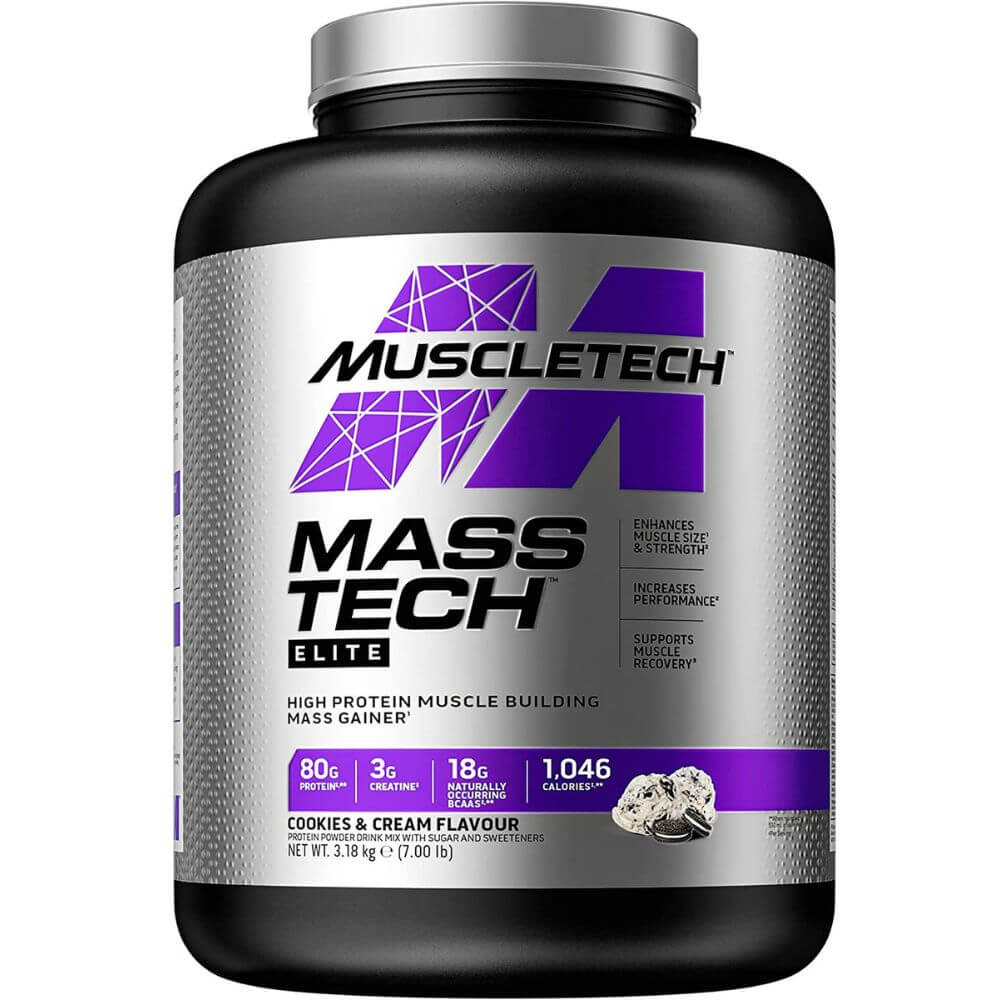Protein Powder: An Aid for Weight Gain?
Yes! Protein powder is a convenient and efficient way to increase your protein intake. Essential for muscle growth and repair, it can help you reach your weight gain goals. Plus, it comes in several different sources like whey, casein, soy, pea, and brown rice protein.
Protein powders and Mass Gainers are fortified with vitamins and minerals, plus fiber, healthy fats, and carbohydrates. All these assist digestion promote satiety and promote weight gain. Protein supplementation is for both men and women equally.
Many young people struggle with weight gain incorporate protein powder into their diets, 46% of Americans say they regularly consume protein drinks and protein shakes. For those who buy whey protein products, more than half are under the age of 25 years.
Understanding protein powder
Protein powder is a must for weight gain! It offers a concentrated source of top-notch protein, which is a must for muscle growth and recovery. Learning how to use protein powder the right way can help you get the best out of your weight gain journey.
Let's explore more:
Benefits of Protein Powder:
- Builds Muscle: Protein powder has amino acids that support muscle repair and growth.
- Easy & Portable: It can be quickly blended with water or added to shakes. Ideal for those on the go!
- Versatile: Protein powder can be used in numerous recipes such as smoothies, and pancakes, even simply adding it to oatmeal every morning.
Factors to Consider:
- Types of Protein: There are many protein powders such as whey, casein, soy, and plant-based. Each has its own benefits.
- Serving Size: The right serving size depends on factors like body weight, activity level, and fitness goals. Talk to a nutritionist for personalized advice.
- Timing: Consume protein powder within 30 minutes of exercise for better muscle recovery and an anabolic environment.
Type of Whey Protein
Whey Protein Isolate (WPI) and Whey Protein Concentrate (WPC) are two popular forms of whey protein, each with its own set of benefits. WPI is processed to remove most fats and lactose, resulting in a higher protein content—usually around 90% or more.
It's a great option for those who are lactose intolerant or are looking for a more rapid absorption of protein. On the other hand, WPC has a lower protein content, typically ranging from 70% to 85%, but retains more of the beneficial nutrients found in whole whey.
The key difference lies in the processing and composition. WPI is often considered more refined and purer, making it a go-to for serious athletes or those on calorie-restricted diets.
WPC, with its broader range of nutrients, can be a more balanced option for general fitness enthusiasts or those new to protein supplements, or those whose goal is purely to promote weight gain.
Both types are effective for muscle repair and growth, but your individual needs and goals will dictate which is more suitable for you.
Casein protein is derived from milk and is known for its slow-digesting properties. Unlike whey, which is rapidly absorbed, casein provides a sustained release of amino acids into the bloodstream.
It's composed of bioactive peptides and has a complex molecular structure, which includes a high concentration of glutamine and a full spectrum of essential amino acids. This makes it an ideal protein choice for muscle repair and growth, especially during periods of fasting or between meals.
Both Whey and Casein are made from milk.

Benefits of using Protein Powder for Weight Gain
To effectively utilize protein powder for weight gain, let's explore the benefits it offers. Discover how it can help you achieve increased muscle mass, improve recovery and repair, and serve as a convenient nutritional supplement.
Each sub-section will delve into a specific advantage of incorporating weight gain supplements into your weight gain journey.
Increased muscle mass
Protein powder has been found to be beneficial for gaining weight - particularly muscle mass. This is because of 3 main factors:
- Amino acids, which are the building blocks of muscle, are found in a concentrated form in protein powder. Regular consumption of it allows people to meet their daily protein needs and support muscle growth.
- Vitamins and minerals are added to protein powders, contributing to overall muscle health and aiding in recovery after exercise.
- Easily digested and absorbed, protein powder quickly supplies nutrients to the muscles. This aids in efficient muscle repair and growth.
There are other benefits to increased muscle mass than simply looks. More lean muscle mass can help athletic performance, strength, and body composition.
Pro Tip: To get the most out of protein powder for weight gain and muscle growth, it's best to consume it right after exercise - when nutrient absorption is highest.
Improved physical recovery and muscle repair
Following intense exercise, your muscles necessitate time for recuperation and repair. This is where protein powder can be a major assist in enhancing the recovery and repair process.
Here are six primary advantages of using protein powder for improved recovery and repair:
- Faster Muscle Recovery: Protein powder contains essential amino acids that help fix damaged muscle tissues and boost muscle growth. By ingesting protein powder after a workout, you can hasten the healing process and reduce muscle soreness.
- Improved Protein Synthesis: Protein synthesis is the procedure by which your body builds new proteins to replace damaged ones. By consuming protein powder, you provide your body with a concentrated dose of high-quality protein, which boosts protein synthesis and accelerates muscle repair.
- Enhanced Nutrient Delivery: Protein powder is quickly digested and absorbed by your body, enabling the nutrients to reach your muscles rapidly. This rapid nutrient delivery guarantees that your muscles receive the essential building blocks for recovery without any delay.
- Reduced Muscle Breakdown: Intense exercise can lead to muscle breakdown, especially if you are not supplying enough nutrients for recovery. Protein powder stops excessive muscle breakdown by furnishing an adequate amount of amino acids to back up muscle repair.
- Optimal Training Adaptation: When you train regularly, your body adapts, becoming more powerful and proficient. Protein powder helps this adaptation process by ensuring that your muscles have all the necessary nutrients they need to reconstruct and get stronger after each workout.
- Convenient Nutritional Supplement: A convenient nutritional supplement that supplies essential amino acids and is easy to prepare. ts portability makes it hassle-free to carry around, so you never miss out on your daily nutrient intake.
Discover the benefits of a protein powder for weight gain!

Choosing the right protein powder for weight gain
To ensure you make the best choice in protein powder for weight gain, dive into the "Choosing the right protein powder for weight gain" section. Explore the benefits of Whey protein, Casein protein, and Plant-based protein options as effective solutions. Now, let's delve straight into the details without wasting any time.
Whey Protein
Let's take a look at whey protein in a table:
| Brand | Protein (g) | Calories/serving |
|---|---|---|
| Optimum Nutrition Gold Standard 100% Whey | 24 | 120 |
| Dymatize ISO-100 | 25 | 110 |
| MuscleTech NitroTech | 30 | 140 |
Now, let's explore some interesting facts about whey protein. It is easily digestible compared to other forms of protein powder. This makes it great for quick post-workout recovery. Plus, it has immune-boosting properties that can help your health.
To get the most out of whey protein for weight gain:
- Timing: Have it within 30 minutes after your workout for best results.
- Pairing: Combining whey protein with carbs helps absorption and fuels muscles.
- Dosage: Stick to the serving size on the product packaging for your daily protein needs.
By following these tips you can make the most of whey protein and boost your weight gain in a healthy way. Always speak with a healthcare professional or nutritionist before starting any new supplements or changing your diet.
Casein Protein
Casein protein is known for its slow digestion rate. This can be beneficial for prolonged periods without food, like when sleeping. It prevents muscle breakdown by providing a steady flow of amino acids.
Plus, it contains high amounts of calcium which helps bones and muscles. Plus, it can help you feel fuller longer, potentially aiding with weight management.
A study in the Journal of the International Society of Sports Nutrition found that consuming casein protein before bed with resistance training improved muscle strength and size.
Plant-Based Protein
Plant-based protein is easy to digest, perfect for those with sensitive tummies. Plus, it's full of important amino acids, aiding muscle repair and growth. It's also usually free from common allergens like dairy and gluten.
Environmentally friendly, it needs fewer resources to produce than animal-based proteins. What's more, it's high in fiber, aiding digestion and weight control. Plus, there's a wide selection - of soy, pea, hemp, and rice protein powders, to cater to different dietary needs.
All protein powders and Mass gainers can be used in shakes for weight gain or in baking or cooking recipes.

Determining the appropriate dosage
To determine the appropriate dosage for protein powder for weight gain, you need to calculate your protein requirements and understand the recommended protein intake. By calculating your specific needs and following recommended guidelines, you can effectively use protein powder to support your weight gain goals.
Calculating protein requirements
To comprehend this procedure, examine the following table:
| Factors | Protein Requirement (grams/day) |
|---|---|
| Sedentary Adult | 0.8 |
| Athlete | 1.2 - 2 |
| Pregnant | 1.1 - 1.5 |
| Elderly | 1 |
These figures are general tips to work out protein requirements. But, individual needs could differ based on individual circumstances or medical conditions.
Apart from age and activity level, it's critical to consider the quality of the protein sources consumed. Animal-based products usually provide complete proteins with all the essential amino acids the body needs. Plant-based sources may need a careful combination to ensure adequate intake of these essential building blocks.
Moreover, it is worth noting that the accuracy of calculating protein requirements is an important factor in achieving desirable health outcomes. Consulting with a registered dietitian or healthcare professional can offer personalized guidance based on individual needs and goals.
Recommended protein intake for weight gain
Gaining weight requires determining the right amount of protein to take. This ensures the body gets enough to build and repair tissues and support muscle growth. A table shows the recommended intake based on activity level and weight. Plus, age, gender, and health influence the best protein intake. Consulting a healthcare professional or dietitian can help decide.
Studies have shown that spreading protein intake throughout the day benefits muscle protein synthesis. Eating 20-30 grams of quality protein in three to four meals can boost muscle-building. Also, having a variety of animal and plant-based protein sources ensures an adequate supply of essential amino acids.
A study in the Journal of Nutrition and Metabolism showed that individuals with higher-protein diets experienced higher increases in lean body mass compared to those with lower intakes.

Incorporating Protein Powder into your Diet
To incorporate protein powder or a Mass Gainer into your diet effectively for weight gain, utilize various methods including pre-workout shakes, post-workout shakes, and protein-rich meals and snacks.
Evidence suggests that according to a study published in the Journal of the International Society of Sports Nutrition, drinking a pre-workout shake with both carbs and protein enhanced endurance performance in trained cyclists.
Weight Gain Protein Shakes
Pre-workout shakes select options that include a mix of fast-acting and slow-releasing proteins and some Carbs to give lasting energy throughout your workout. A mass gainer or WPC blend is ideal. Consume your pre-workout shake around 30 minutes before exercising to allow enough time for digestion and nutrient
Post-workout shakes should be consumed within 30 minutes of finishing a session. Muscles are then most receptive to absorbing nutrients. High-quality protein powder should be used. Check for essential amino acids, minimal added sugars, and artificial ingredients.
Carbs like fruits, oats, or honey can help replenish glycogen stores and provide energy. Don't forget to hydrate with water or coconut water.
Shakes can be tailored to individual preferences and goals. Experiment with different proteins, fruits, Milk, and other ingredients to find a good fit.
The Journal of the International Society of Sports Nutrition conducted a study that found that post-workout shakes can help muscle protein synthesis for young adults. So, using shakes can be beneficial for muscle recovery and growth.
Protein-rich meals and snacks
Protein is a must-have nutrient for our body's health. Adding protein-rich meals and snacks to our diet can give us lots of benefits. Here are some points:
- Protein helps muscles heal and grow. It gives the body amino acids to make muscle tissues stronger, which is great for people doing physical activities or wanting to build muscle.
- Protein takes longer to digest than carbs, so it keeps us feeling full for longer. This can help us regulate our appetite and manage our weight.
- Protein also boosts our metabolism. It uses up more energy to digest than other macronutrients like fat or carbs, meaning more calories burned.
- keeps our blood sugar levels steady. Protein slows down the rate at which glucose gets into our blood, preventing sudden spikes in sugar. This is important for people with diabetes or trying to prevent insulin resistance.
Not all protein sources are the same. Animal products like meat, eggs, and dairy contain all nine essential amino acids, but plant-based sources like beans, nuts, and grains do not contain all nine essential amino acids but can still be a part of a balanced healthy diet.

Precautions and considerations
To ensure the safe and effective use of protein powder for weight gain, it is essential to take precautions and consider a few factors.
Consulting with a healthcare professional, checking for allergies or intolerances, and monitoring for side effects are vital steps to maximize the benefits of protein powder as a solution for weight gain.
Blood Tests
Gaining weight can have a complex relationship with cholesterol levels in the body. While weight gain is often associated with an increase in bad LDL cholesterol and a decrease in good HDL cholesterol, the type of weight gain matters.
For example, gaining muscle mass through exercise and a balanced diet rich in healthy fats and protein may not have the same negative impact on cholesterol as gaining weight through a diet high in saturated fats and sugars.
It's essential to approach weight gain mindfully, focusing on nutrient-dense foods, to mitigate potential negative effects on cholesterol levels. Always consult with a healthcare provider for personalized advice.

Tracking progress and adjusting your regimen
- Set goals: Decide how much weight you want to gain and set a timeline. Break the goal into smaller milestones. This will keep you motivated.
- Keep a food diary: Track what you eat and drink each day. Include portion sizes, macronutrient breakdown, and calories. See what needs adjusting.
- Assess and adjust regularly: Take body composition measurements (weight, body fat, muscle mass) at regular intervals. Compare measurements to your initial baseline. Make adjustments as required.
Also, listen to your body's signals. Notice how you feel during workouts, recovery, and energy levels.
Consistency is key when tracking progress effectively. Make small changes over time to fine-tune the process.
A study published in the Journal of Strength & Conditioning Research says people who track progress consistently are more likely to achieve weight gain goals.
Tracking your progress lets you identify trends and ensure you're on the right path. With a structured tracking and adjustment system, you can maximize protein powder benefits and achieve weight gain objectives.
Conclusion
Using protein powder for weight gain is an important aspect to consider. Studies have shown it can boost muscle growth and body mass. It is a high-quality source of protein that can help you achieve weight gain goals efficiently.
Protein powder is versatile - it can be added to shakes, smoothies, and even pancakes! This makes it easy to incorporate into meals and snacks.
Not all protein powders are equal, so look for ones with a complete amino acid profile. Consider dietary restrictions or preferences when choosing the right type of protein powder, such as whey, soy, pea protein, or casein protein powder.
Historically, athletes have been using these supplements for decades to enhance muscle growth and strength. People who used them correctly have had great success stories.







